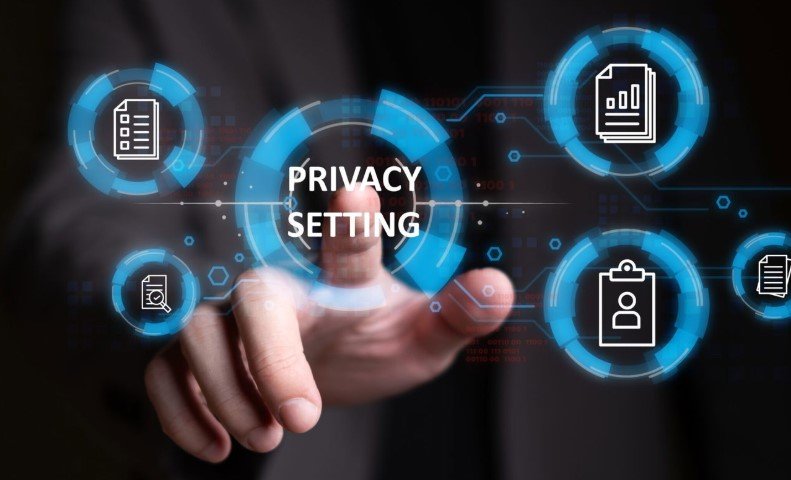The adult entertainment industry is pushing back hard against new regulations in the UK, France, and the European Union that require age checks to block kids from porn sites. These rules, rolled out in 2025, aim to protect minors but spark fears of privacy loss and overreach, leading to a revolt among performers and platforms.
Global Push for Online Safety Sparks Debate
Regulators across Europe have stepped up efforts to shield children from adult content online. In the UK, the Online Safety Act took effect on July 25, 2025, forcing porn sites to verify user ages through methods like ID uploads or credit card checks.
France followed suit with similar mandates, while the EU issued guidelines pushing for strict age verification. Leaders like French President Emmanuel Macron and EU Commission President Ursula von der Leyen have championed these moves, citing studies showing that over 40 percent of teens encounter porn by age 13.
This wave of rules comes amid growing concerns about digital harms. A 2025 report from child protection groups highlighted that easy access to explicit material can lead to distorted views on relationships among youth.
Yet, the industry argues these laws go too far. At a major adult industry event in Amsterdam in September 2025, speakers like porn star Marcello Bravo called out the UK’s rules as invasive, joking that Brits now hand over personal data just to view content.

How Age Verification Works Under New Laws
Porn platforms must now use tech to confirm users are over 18. Options include facial scanning, government ID uploads, or third-party services like digital wallets.
In the UK, regulator Ofcom enforces these with fines up to 10 percent of a site’s global revenue for non-compliance. France’s rules, part of the SREN Law, allow blocking non-compliant sites, leading some like Pornhub to pull out entirely.
The EU’s Digital Services Act adds pressure, with investigations into major platforms for failing to protect minors. By September 2025, several sites faced probes, prompting quick changes.
Here is a quick look at key regulations:
| Country/Region | Key Law | Start Date | Main Requirement | Penalties |
|---|---|---|---|---|
| UK | Online Safety Act | July 25, 2025 | Robust age checks like ID or facial estimation | Fines up to 10% of global revenue |
| France | SREN Law | July 2025 | Age verification via ID or credit card | Site blocking and fines |
| EU | Digital Services Act | Ongoing, guidelines in summer 2025 | Strict checks to block minors | Investigations and potential bans |
These measures aim to create a safer internet, but they vary in strictness, leading to uneven enforcement across borders.
Platforms have adapted in different ways. Some use AI-driven age estimation, which scans faces without storing data, while others require full ID verification.
Industry Fights Back on Privacy and Freedom
Adult industry insiders say the rules threaten user privacy and free speech. Many performers and site owners worry that collecting personal data could lead to hacks or government surveillance.
At the XBIZ Amsterdam conference in September 2025, attendees voiced outrage. One platform employee told reporters that forcing users to share IDs feels like “Big Brother watching your bedroom.”
Critics point to a surge in VPN use in the UK after the law started, with downloads jumping 50 percent in July 2025, according to tech reports. This lets users bypass checks by masking locations.
The revolt includes legal challenges. Groups like the Free Speech Coalition have filed suits arguing the laws violate privacy rights under EU data protection rules.
Performers like Bravo highlight economic hits. Smaller sites struggle with compliance costs, potentially driving them out of business and consolidating power with big players.
Some argue the rules stem from moral panic rather than evidence. A 2025 study from the University of Amsterdam found that while age checks reduce minor access, they also push users to unregulated dark web sites.
Impacts on Users and the Broader Web
Everyday users face new hurdles. In France, popular sites like YouPorn blocked access for locals refusing to comply, forcing people to seek alternatives.
This has led to mixed results. Traffic to compliant sites dropped 20 percent in the UK by August 2025, per industry analytics, as users switched to VPNs or non-verified platforms.
Broader effects ripple out. Social media giants like X (formerly Twitter) must now assess if kids can access adult content on their platforms, potentially leading to wider age gating.
Child advocates praise the changes. Organizations like the Internet Watch Foundation report fewer child exposures since the UK’s law began.
However, privacy experts warn of risks. Data breaches could expose sensitive info, eroding trust in online services.
Key challenges include:
- High costs for small businesses to implement tech.
- Potential for biased AI in facial scans, affecting certain ethnic groups.
- Increased use of unsafe, unregulated sites.
What Lies Ahead for Porn Regulations
Looking forward, more countries may adopt similar rules. Italy and Germany are eyeing their own age verification laws, inspired by the UK and France.
The industry calls for balanced approaches, like anonymous verification methods that do not store data. Tech firms are developing privacy-focused tools, such as blockchain-based age proofs.
In the EU, a court opinion in September 2025 suggested France could enforce rules on sites based in other member states, potentially standardizing regulations.
Experts predict ongoing battles. A 2025 global survey showed 70 percent of adults support protecting kids but oppose giving up anonymity.
As debates heat up, the porn industry’s revolt highlights tensions between safety and freedom online. Share your thoughts in the comments below or spread the word on social media to join the conversation.








